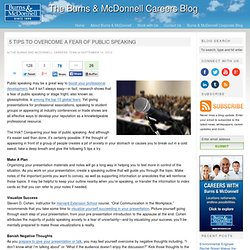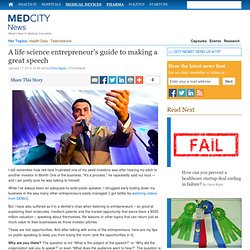

24a0f05.png (JPEG Image, 685 × 393 pixels) Top 100 Speeches of the 20th Century by Rank. What's Your Presenter Type? Do you know what kind of presenter you are?

I believe we all have a natural presentation style to build our next rockin’ presentation around and Gavin McMahon who blogs at Make A Powerful Point rocked my world with this blog post and his webinar about the 6 presenter types. You should speak to your strengths, and I agree with Gavin’s philosophy of embracing and getting to know YOU as a presenter. I loved his post so much that I asked to reblog. Gavin asked for one better – he asked me to supply commentary on each of the presenter types. I was flattered and happy to do so. Away we go! The 6 Presenter Types: Which one are you? 3 bullets on a slide. 1 slide per minute. Over the last 10 years we’ve worked with thousands of clients in a range of industries.
There are 6 types of presenter. Take one minute to find your presenter type for fast-acting relief from PowerPoint pain. Do the quiz before reading on. 1. Relationship building weakness: Not all audiences are engaged. 2. 3. 4. 5. 5 Tips to Overcome a Fear of Public Speaking. Public speaking may be a great way to boost your professional development, but it isn’t always easy—in fact, research shows that a fear of public speaking or stage fright, also known as glossophobia, is among the top 10 global fears.

Yet giving presentations for professional associations, speaking to student groups or appearing at industry conferences or trade shows are all effective ways to develop your reputation as a knowledgeable professional resource. The trick? Conquering your fear of public speaking. And although it’s easier said than done, it’s certainly possible. If the thought of appearing in front of a group of people creates a pit of anxiety in your stomach or causes you to break out in a cold sweat, take a deep breath and give the following 5 tips a try. Remembering the Challenger, and One of History’s Greatest Speeches. Yesterday marked 27 years since the tragic Space Shuttle Challenger disaster.

Ronald Regan’s subsequent address to the nation is still one of the most well-crafted pieces of communication I’ve ever witnessed. Michel E. Eidenmuller, in his book Great Speeches described the situation: “In addressing the American people on an event of national scope, Reagan would play the role of national eulogist. In that role, he would need to imbue the event with life-affirming meaning, praise the deceased, and manage a gamut of emotions accompanying this unforeseen and yet unaccounted-for disaster. As national eulogist, Reagan would have to offer redemptive hope to his audiences, and particularly to those most directly affected by the disaster.” The speech succeeded in meeting the emotional requirements of five audiences by carefully addressing each segment. The speech lasted only four short minutes, but it resonated on many many levels. Easy Public Speaking and Presentation Skills. A life science entrepreneur’s guide to making a great speech. I still remember how red-face frustrated one of my seed investors was after hearing my pitch to another investor in Month One of the business.

“It’s a process,” he repeatedly said out loud — and I am pretty sure he was talking to himself. While I’ve always been an adequate-to-solid public speaker, I struggled early boiling down my business in the way many other entrepreneurs easily managed (I got better by watching videos from DEMO). But I have also suffered as if in a dentist’s chair when listening to entrepreneurs – so good at explaining their molecules, medtech patents and the market opportunity that earns them a $500 million valuation – speaking about themselves, life lessons or other topics that can return just as much value to their businesses as those investor pitches. These are lost opportunities. And after talking with some of the entrepreneurs, here are my tips on public speaking to keep you from losing the room (and the opportunities in it).
Why are you there?